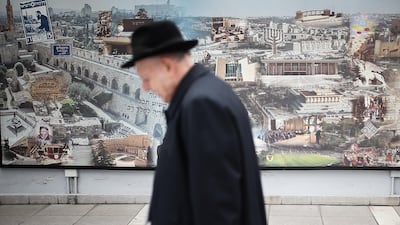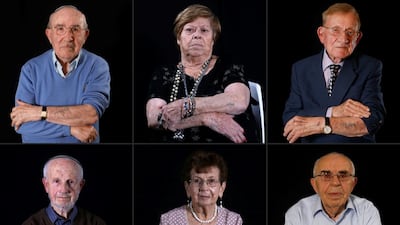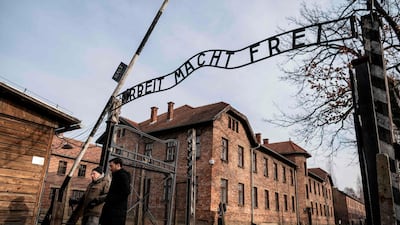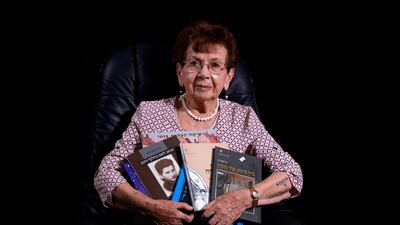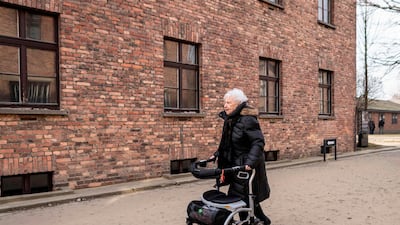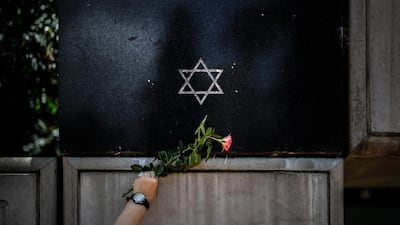This month marks the 75th anniversary of the liberation of the Nazi death camp at Auschwitz-Birkenau. For this reason, the United Nations designates January 27 as International Holocaust Remembrance Day and urges member states to generate educational programs for teaching the lessons of the Holocaust and preventing future acts of genocide.
The occasion brings up many thoughts and feelings for me as a Jewish person. It reminds me of my friend Lesley Weiss, whose brave mother Irene miraculously survived the horrors of Auschwitz-Birkenau as a young girl, though many of her other relatives were murdered. Lesley has spent decades of her career tenaciously fighting bigotry and assisting vulnerable Jewish communities, while her 89-year-old mother has continued to teach audiences around the world about what she witnessed and experienced during the Holocaust.
The Nazis murdered six million Jewish men, women, and children with the goal of exterminating the Jewish people in Europe. The Holocaust was not the first genocide by any means, but it was the first on such an industrial and systematic scale.
Nearly 2.7 million of these 6 million Jews were murdered in killing centres such as the one at Auschwitz by poison gas or shooting. At least 1.5 million other Jews were killed in systematic operations elsewhere in territories occupied by Germany. Another 800,000 Jews died due to hardships in Nazi-imposed ghettos. The Nazis and their collaborators in Europe killed a further million Jews in other ways as well.
While Jewish people were the Nazis’ primary target for annihilation, this occasion also reminds me of the millions of non-Jewish victims who were targeted and killed simply for belonging to groups that the Nazis hated. These victims included Russians, Poles, Serbs, Roma, Jehovah’s Witnesses, the disabled and gay people. Hitler slandered Arabs as well, baselessly accusing them of being racially inferior to Germans.
This occasion also reminds me of the importance of commemorating victims from genocides during other periods of history, including Armenians, Assyrians, Bosnians, Cambodians, Croatians, Kurds, Rohingya, Tutsis, Yazidis, many indigenous peoples including in the US, and all too many others.
Closer to home, this occasion reminds me of my grandfather Larry, born in America but named for his own grandfather Eliezer who had been beheaded years before in an anti-Semitic attack in the town of Augustow in Eastern Poland. Until my grandfather’s death last year, he carried a bayonet wound in his stomach and landmine shrapnel in his legs from fighting for the US Army to liberate France from Hitler. Many of his relatives who remained in Augustow were murdered by the Nazis, some in local shooting operations and some after being deported to camps.
The US Holocaust Memorial Museum calls the Holocaust “the best documented case of genocide” in human history. And yet it is not uncommon to encounter Holocaust denial, distortion and minimisation today, which is part of why I believe it is still so important to raise public awareness.
It is for this reason that I was so grateful for the historic words in 2018 of Sheikh Mohammad Al Issa, Secretary-General of the Muslim World League, that “we consider any denial of the Holocaust or minimising its effect an insult…an affront to us all.” Al Issa later toured the US Holocaust Memorial Museum and just this month became the most senior Muslim preacher in history to visit Auschwitz.
Perhaps most inspiringly, this occasion reminds me of all the people of good conscience, like Al Issa, who are not Jewish and yet stand up as allies against anti-Semitism and all forms of bigotry nonetheless.
This includes people like my friend Mina Abdelmalak, who serves as the US Holocaust Memorial Museum's Arabic Audience Outreach Specialist, managing the museum's Arabic online resources, and Dr Mehnaz Afridi, Director of the Holocaust, Genocide and Interfaith Education Centre at Manhattan College and the author of Shoah through Muslim Eyes. It also includes the North African heroes who saved Jewish lives during the Holocaust, whose stories my friend Dr Robert Satloff has chronicled in his book Among the Righteous.
Indeed, many of these people are Christians or Muslims. For example, I learned a lot from participating in an event at my local Jewish community centre this month celebrating Albanian Muslims who heroically saved the lives of their Jewish neighbours during the Holocaust.
These allies against hate also include people like Sheikh Abdullah bin Bayyah, Chairman of the Forum for Promoting Peace in Muslim Societies, who hosted hundreds of faith leaders in Abu Dhabi last month for an interfaith peacebuilding summit. I was honoured to participate in this summit, which left a lasting impression on me and reinforced my commitment to support tolerance and justice for all people.
I look forward to many future conversations with people of all faiths and nations, including in the UAE, about what the fight against intolerance means to each of us.
David Andrew Weinberg is the Washington director for International Affairs at Anti-Defamation League
